Table of Contents
The Central Board of Secondary Education (CBSE) will be conducting the CTET Exam 2025, with details available on the official CTET website https://ctet.nic.in/. As the exam date is getting closer, candidates are preparing rigorously, particularly for the crucial CTET Maths section (worth 30 marks in both Paper 1 and Paper 2) which covers mathematics concepts and teaching methods. To facilitate CTET aspirants, we offer comprehensive CTET Maths Pedagogy Question and Answers, meticulously designed to strengthen their exam preparedness.
CTET Mathematics Section: Overview
The Central Board of Secondary Education (CBSE) is administering the CTET Exam 2025 on 8 February 2025. This exam is mandatory for aspiring teachers in Indian government schools to demonstrate their eligibility. For detailed information on the CTET Mathematics Section, a crucial section worth 30 marks in both Paper 1 and Paper 2, please refer to the table below.
| CTET Mathematics Section | ||
| Exam Name | CTET Exam 2025 | |
| Conducting Body | CBSE | |
| Total Marks | 30 marks (on each paper) | |
| Total Time | 2.5 Hr | |
| Marking | For the right answer 1 mark | |
| Negative Marking | No | |
| Question Pattern | Objective type | |
| Difficulty level for Paper 1 | Upto 8th Class | |
| Difficulty level for Paper 2 | Upto 10th Class | |
| Examination pattern | based on the primary level for Paper I and the upper primary level for Paper II. | |
| CTET Official Website | https://ctet.nic.in/ | |
Download CTET Maths Questions and Answers PDF
Explore the link below to access the CTET Maths Question and Answer PDF directly. It offers an extensive collection of 50 CTET Maths pedagogy questions accompanied by detailed answers. We highly recommend that candidates download this resource to enhance their preparation for the exam.
CTET Maths Pedagogy Question and Answer
CTET Maths Pedagogy Questions and Answers PDF
Q1. Which of the following activities is most likely to develop spatial reasoning among students?
(a) Drawing bar graphs to represent data
(b) Identifying patterns in a number-chart
(c) Solving Sudoku puzzles
(d) Identifying tessellating figures
Q2. Which of the following is most suitable for teaching children the concept of fractions?
(a) Cuisenaire rods
(b) Abacus
(c) Geoboards
(d) Number charts
Q3. Which of the following statements is NOT correct with regard to the nature of mathematics?
(a) Mathematics uses special vocabulary to communicate ideas precisely.
(b) Argumentation skills are important in the construction of mathematical knowledge.
(c) Mathematical concepts are hierarchical in nature.
(d) Primary-level mathematics is concrete and does not require abstraction.
Q4. Identify the correct statement.
(a) The shape of the figure determines the perimeter.
(b) If two figures have the same area, their perimeters are equal.
(c) If two figures have the same perimeter, their areas are equal.
(d) The units of perimeter and area are the same.
Q5. In which of the following statements, the number ‘three’ is used in an ordinal sense?
(a) This box contains many sets of three pencils.
(b) I live on the third floor of this building.
(c) This house has three rooms.
(d) All groups have three team members.
Q6. Identify the correct statement with regard to introducing the concept of triangles atthe primary level.
(a) Children should be exposed to triangles of all types and also to other figures.
(b) The definition of a triangle should be provided first.
(c) Children should only be exposed to equilateral triangles to avoid confusion.
(d) Children should be exposed to triangles of all types but exposure to other figures should be avoided.
Q7. Identify the correct statement with respect to the mathematics curriculum.
(a) The concept of area measurement should be introduced only at the upper primary level.
(b) The foundation of algebraic thinking can be laid at the primary level.
(c) The concept of fractions should be introduced only at the upper primary level.
(d) The concept of negative numbers should be introduced at the primary level for better understanding.
Q8. Following are some questions posed by the teacher in the mathematics classroom
A. What is the area of the rectangle whose one side is 5 cm and the perimeter is 30 cm?
B. Find a set of numbers whose median is 4.
C. List all prime numbers between 0-8.
D. Tell me anything mathematical information you know about rectangles.
(a) A & C are closed-ended and B & D are open-ended questions.
(b) A & B are closed-ended questions and C & D are open-ended questions.
(c) A, B & C are closed-ended and D is an open-ended question.
(d) A is closed-ended and B, C & D are open-ended questions.
Q9. Which of the following is a desirable teaching-learning practice in the context of Mathematics?
(a) Students should be told to follow the prescribed steps of solving problems.
(b) Open-ended questions should be avoided to prevent confusion.
(c) Intuitive understanding of concepts should be encouraged.
(d) Open-book tests should be avoided.
Q10. Rohit realises that a square is both a rhombus and a rectangle. He Is at what stage of Van Hiele’s visual thinking?
(a) Level 3 (Deduction)
(b) Level 0 (Recognition)
(c) Level l (Analysis)
(d) Level 2 (Relationships)
Solutions
S1. Ans.(d)
S2. Ans.(a)
S3. Ans.(d)
S4. Ans.(a)
S5. Ans.(b)
S6. Ans.(a)
S7. Ans.(b)
S8. Ans.(a)
S9. Ans.(c)
S10. Ans.(d)

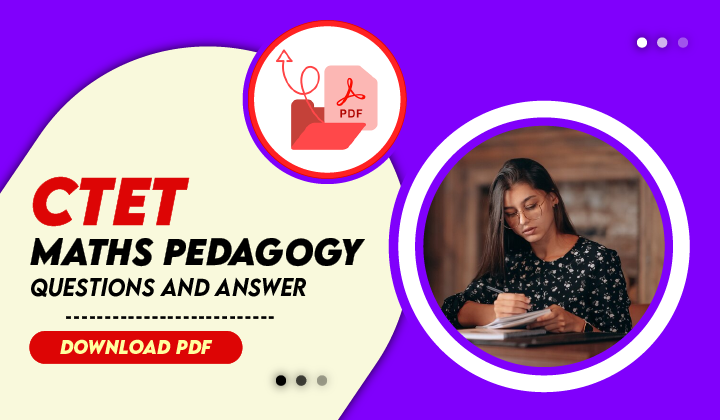
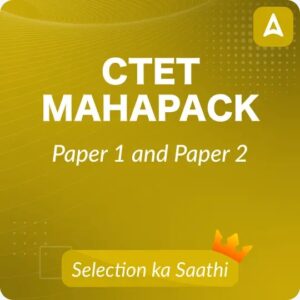

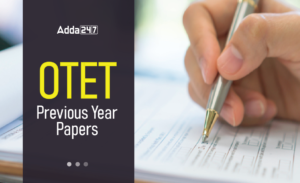 OTET Previous Year Question Papers, Down...
OTET Previous Year Question Papers, Down...
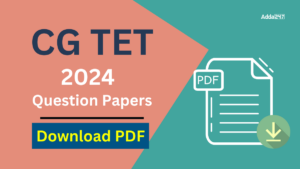 CG TET Question Paper 2024 PDF Download
CG TET Question Paper 2024 PDF Download
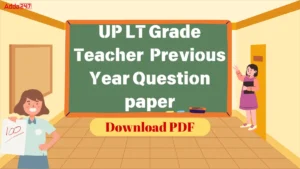 UP LT Grade Teacher Previous Year Questi...
UP LT Grade Teacher Previous Year Questi...












